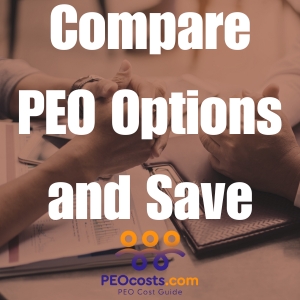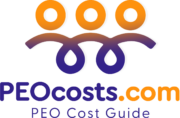
How PEO Services Simplify Multi-State Payroll Compliance
Managing payroll in one state is hard enough. Managing it across multiple states? That’s a whole different level of complexity.
I’ve worked with dozens of growing companies that expanded operations across state lines only to realize they were completely unprepared for the patchwork of payroll tax rules, labor laws, and compliance requirements that come with it. That’s usually when they call me.
My name is Carol Sanders. I’m a Harvard University graduate with a degree in psychology and human resources. I’ve spent the last eight years helping companies navigate HR challenges as the owner of a successful PEO consulting firm here in Massachusetts. I also write for PEO Costs, where I break down the benefits of outsourcing HR functions through Professional Employer Organizations (PEOs).
Today, I want to explain why multi-state payroll compliance becomes such a challenge—and how working with a PEO can simplify the entire process for businesses looking to grow across state lines without drowning in red tape.
The Payroll Headache of Multi-State Operations
When your business operates in more than one state, your payroll team has to juggle:
- Different income tax rates and withholding requirements
- Varying deadlines for tax filings and deposits
- State-specific wage and hour laws (like minimum wage and overtime rules)
- Unique unemployment insurance contributions
- Varying requirements for employee benefits and paid leave
Even something as simple as where an employee works remotely can complicate where taxes are owed. I’ve seen businesses unintentionally misclassify employees, underpay state taxes, or violate wage laws—all because they didn’t have the time or expertise to track every state’s requirements.
That’s where a PEO becomes a game-changer.

How PEOs Manage Multi-State Payroll Seamlessly
When you partner with a PEO, they become the employer of record for tax purposes under a co-employment agreement. That means the PEO assumes responsibility for payroll processing, tax filings, and compliance across all jurisdictions—while you still manage your employees day-to-day.
Here’s what that looks like in practice:
1. Centralized Payroll Processing
Instead of running separate payroll systems for each state, your PEO handles everything under one platform. Your entire team—regardless of where they live or work—is paid accurately and on time.
2. Automated Tax Withholding and Filing
PEOs stay current on each state’s tax laws and update your payroll system in real time. They calculate, withhold, and remit federal, state, and local payroll taxes on your behalf, removing guesswork and drastically lowering the risk of penalties.
3. Compliance with Wage and Hour Laws
Each state has its own labor laws around overtime, breaks, scheduling, and more. A good PEO will automatically apply the correct rules to employees based on their location—and audit your timekeeping systems for compliance.
4. Support for Multi-State Benefits Plans
Offering consistent benefits can be tricky across state lines. A PEO can administer employee benefits in compliance with state regulations, including health insurance, disability, and paid family leave mandates.
5. Accurate Employee Classification
Misclassifying workers across states (especially between W-2 and 1099 status) is a common mistake. PEOs ensure your classifications meet both state and federal standards.

Real-World Example: One Client, Four States
One of my clients, a rapidly growing software company, had just opened satellite offices in Colorado, Texas, and New York. Their HR team was struggling to keep up with different minimum wage rates, state income tax rules, and paid leave laws.
After partnering with a PEO, we centralized their payroll processing, adjusted for state-specific tax withholdings, and ensured their benefits offerings met all local requirements. Best of all, they went from needing two full-time payroll staff to just one part-time HR coordinator—freeing them up to focus on growth instead of compliance.
Why Outsourcing Payroll Through a PEO Is the Safer Option
When businesses expand into multiple states, even the most experienced internal payroll teams can run into trouble. Each state comes with its own unique set of rules—from wage laws and tax deadlines to benefit mandates and employee classifications. And when you’re trying to grow quickly, it’s easy for small mistakes to snowball into serious liabilities.
That’s why outsourcing payroll through a PEO is not just convenient—it’s one of the smartest ways to protect your business from costly errors and compliance issues.
PEOs Are Built for Compliance
A quality PEO has one job: to stay ahead of constantly shifting employment regulations. They have full-time experts tracking labor law changes, updating tax codes in real-time, and making sure every paycheck is processed in line with both federal and state requirements. When you outsource payroll to a PEO, you’re effectively outsourcing legal risk tied to one of the most regulated parts of your business.
I’ve worked with businesses that didn’t even know they were violating state laws—until a tax notice or audit made it clear. In nearly every case, those issues could have been avoided by using a team with multi-state payroll expertise.
You’re No Longer Alone in the Eyes of the IRS
Another advantage of working with a PEO is that they become the employer of record for tax purposes. That means it’s the PEO’s name on many tax documents and filings, not yours alone. This shared liability—under a co-employment agreement—offers a valuable layer of protection.
In simple terms, if a tax payment is late or a form is filed incorrectly, the responsibility typically falls on the PEO to resolve it. That gives business owners peace of mind, especially when operating in unfamiliar regulatory territory.
Accuracy and Timeliness Every Single Pay Period
Late payroll taxes or incorrect withholdings can lead to fines, interest, and penalties—not to mention unhappy employees. PEOs use automated systems that are designed to ensure payroll is processed accurately, on time, and in compliance with every local rule. They handle:
- State and local income tax withholding
- Unemployment insurance reporting
- Wage garnishments
- Benefits deductions
- Overtime calculations by jurisdiction
This level of precision is tough to match internally—especially when you’re managing a workforce across multiple states with different laws.

PEOs Keep You Prepared for Audits and Legal Changes
With a PEO, your business gets access to HR experts who proactively audit your payroll records, employee classifications, and benefits compliance. This means you’re not just avoiding errors—you’re identifying and resolving potential problems before they turn into fines or lawsuits.
They’ll also guide you through legislative changes—whether it’s a new paid leave law, a minimum wage increase, or updated employer responsibilities in a particular state. This guidance is especially helpful during times of rapid policy change, such as the ones we’ve seen in the past few years.
A Reliable Partner in Times of Crisis
Another reason I advocate for PEO partnerships is their stability. During economic disruptions—like public health emergencies, labor shortages, or changing tax policies—a PEO gives your business access to infrastructure, legal resources, and scalable systems that would be expensive or impossible to maintain on your own.
If your company is audited, sued, or faces a compliance inquiry, a PEO doesn’t leave you to handle it alone. They’re invested in resolving the issue because your compliance is tied to their service.
Final Thoughts
Expanding across state lines should be exciting—not terrifying. But if your HR or finance team is already stretched thin, multi-state payroll can quickly become a legal and administrative burden.
That’s why so many companies are turning to PEOs to take this off their plate. When you work with the right partner, you’re not just getting payroll support—you’re getting a strategic advantage.
If you’re dealing with payroll headaches, trying to expand, or just want to make sure you’re compliant, I strongly recommend looking into a PEO solution. It’s one of the smartest moves you can make for long-term growth.
About the Author
Carol Sanders is a Harvard University graduate with a degree in psychology and human resources. She is the owner of a successful PEO consulting firm based in Massachusetts and serves as a writer and editor for PEO Costs. With over eight years of experience, Carol helps growing companies streamline HR, reduce legal risk, and thrive through smart co-employment strategies.


